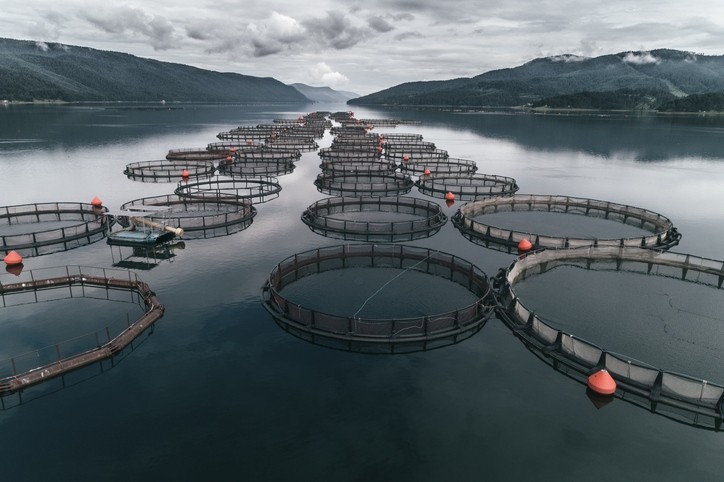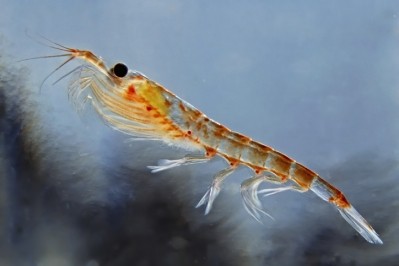Microbial enhanced protein can replace up to 40% of fishmeal content

“We have conducted extensive studies with other fish species, including rainbow trout, Atlantic salmon, Coho salmon, sea bass and white shrimp. Our goal is to determine the nutritional value of ME-PRO in feed ratios for aquatic species who are using it principally as a sustainable protein source,” Sergio Nates, executive vice president at the US aquafeed biotech company, told this publication.
In this latest study, incorporating Prairie AquaTech’s ME-PRO into sea bass diets at levels of 5 and 8% of the total ration enabled feed costs to be reduced without negative impact on feed intake.
“The positive data and results from this study suggest the cost-effectiveness of ME-PRO at the percent inclusion levels evaluated,” wrote the researchers in an article published by The Global Aquaculture Advocate.
Soy without the antinutritionals
In the aquaculture industry, the search is on for plant-based alternatives to animal source proteins. However, to be commercially viable, any ingredients must sustain fish health and growth whilst offering attractive cost in use.
Prairie AquaTech claims to have developed a patented fermentation technology that creates an MEP (microbial enhanced protein) from non-GM soybean meal without the anti-nutritional factors of other alternative protein sources.
“Many of the negative effects associated with soybean meal can be reduced or eliminated using our proprietary fermentation technology. In addition, anti-nutritional factors can be reduced during our process,” explained Nates.
As well as having lower concentrations of many anti-nutritional factors, he said ME-PRO has high digestibility and saves on costs when compared to other ingredients commonly used in aquatic feed ratios.
From an environmental perspective, Nate said ME-PRO’s high phosphorus availability is an advantage as it reduces the amount of phosphorus that is discharged into water.
In this context, he said the aim of this study was to evaluate ME-PRO as a fishmeal replacer in European sea bass diets.
“To achieve this goal, the effects of dietary incorporation of ME-PRO on growth, feed utilization, digestibility and health of juvenile sea bass were identified,” he said.
Study details
The 12-week in vivo study was conducted at the Institute of Marine Biology, Biotechnology and Aquaculture within the Hellenic Centre for Marine Research in Athens. Four diets (one control and three with varying percentages of ME-PRO) were fed to juvenile sea bass. The control diet contained 20% fish meal, while the other three diets contained 5% ME-PRO and 15% fishmeal, 8% ME-PRO and 12% fish meal and 12% ME-PRO and 8% fish meal.
Fish were weighed at the start, middle and end of the trial. Mortality, FCR (feed conversion rates), SGR (specific growth rates) and SFR (specific feeding rates) were evaluated. At the end of the growth trial period, fish samples were collected to evaluate the overall health and condition of the experimental fish. The digestibility of protein, amino acids and nitrogen-free extracts was also assessed, along with possible immunological effects.
No significant differences were observed statistically for SGR, FCR and SFR between the diets tested. However, a slight correlation between increasing levels of MEP and decreasing performance was observed. Whilst there was no discernible difference in performance at inclusion levels of up to 8%, the diet containing 12% ME-PRO resulted in a lower FCR and SGR.
In addition, there were no significant differences in whole body composition between the different diets.
Improved digestibility and immune health
In terms of health parameters, protein digestibility was significantly improved with increased levels of ME-PRO, and the experimental diets resulted in improved amino acid digestibility compared to fishmeal. The inclusion of ME-PRO also slightly improved the immune and hematological status of the fish.
“Similar to previous studies conducted in other aquatic species, dietary concentrations of the commercial MEP tested at up to 5% improved the immunology status of the experimental fish, which may be able to better resist environmental or infectious stress,” wrote the researchers.
Prairie AquaTech said it expects the results to be published in a peer-reviewed journal in 2022.
In the meantime, Nates said the company will continue conducting scientific studies aimed at reducing the environmental impact of aquaculture production.
“Sustainability is a key issue for us. Prairie is determined to offer solutions to ensure food quality and safety by improving human health and the environment in the process,” he said.








